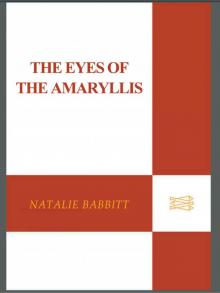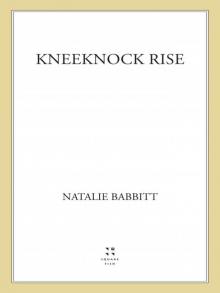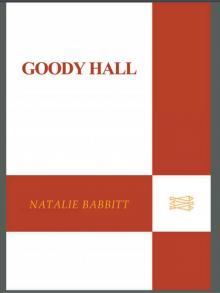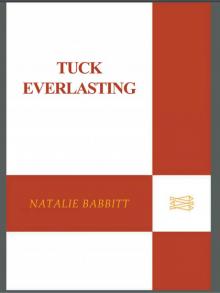- Home
- Natalie Babbitt
Goody Hall
Goody Hall Read online
“To thine own self renew,
and it must follow, as the knight the doe,
thou canst not then befall to any man.”
Hercules Feltwright
For Michael di Capua
Sine Quo Non
Contents
Chapter 1
Chapter 2
Chapter 3
Chapter 4
Chapter 5
Chapter 6
Chapter 7
Chapter 8
Chapter 9
Chapter 10
Chapter 11
Chapter 12
Chapter 13
Chapter 14
Chapter 15
Chapter 16
Questions for the Author
Chapter 1
The blacksmith stood in the door of his shop and sniffed the May breeze hopefully. “There’s something in the air, no doubt about it,” he said to himself with satisfaction. “Something’s going to happen.” He fixed a pipeful of tobacco and lit it contentedly, sorting over in his mind a number of possibilities. There was the baker’s daughter, Millie, who had been in love with the new parson all winter and was said to be pining away because he refused to notice her. Perhaps she would throw herself off the church roof—that would be interesting! There was Alf Hulser’s son Fred, who had been jailed for stealing a cow—maybe he would try to escape. And then, wasn’t it time for Pooley’s barn to catch fire again? It burned to the ground about once every five years. The blacksmith scanned the skies for signs of a storm. Lightning was always good for starting fires. But the sky was clear, so he leaned against the door frame and thought about the last fire. “Five years ago exactly,” he nodded to himself, counting back. “One of the best fires we ever had.” And it had happened the very day before that rich fellow Midas Goody fell off his horse and killed himself.
“Yoo-hoo there!” called a voice. The blacksmith peered down the street through a cloud of pipe smoke and saw a big, heavy woman dressed in black hurrying toward him. “Good morning, Henry!” she said breathlessly as she came up. “What are you standing out here for? Let’s go inside. I’ve been marketing all morning and I want to rest up before I start back to the Hall.”
“Come in then,” said the blacksmith, “and tell me the news.”
The big woman in the black dress was the blacksmith’s sister and her name was Dora Tidings. Mrs. Dora Tidings. “A widow—a very respectable widow,” the villagers declared, “who supports herself by keeping house for that woman out to Goody Hall. You know the place, like a regular palace—if you like palaces. Well, Mrs. Goody’s rich, all right, but it takes more than money to make a fine lady, and that poor little boy of hers, cooped up away from natural play and exercise, although they do say he’s a regular holy terror. Mrs. Goody hasn’t changed her ways one bit since her husband was killed so suddenly that night, and no one ever saw her shed a tear over him. Not that anyone ever knew much about them, coming out of nowhere the way they did—but he was a fine gentleman, you know, or at least that’s what Dora Tidings says.”
What Dora Tidings said counted for a good deal in the village. She was the only one who could be depended upon to pass along the news about the rich Mrs. Goody and her son, and she enjoyed her importance so much that she stayed on and on at Goody Hall, with no one to help her except the gardener’s daughter, Alfreida, who came in afternoons. Not that gypsies were ever much help, the gossip ran, and there was certainly gypsy blood in those two somewhere. All right, so maybe they did have a cottage all their own at the edge of the village instead of the usual gaudy caravan, but still—once a gypsy, always a gypsy. And, of course, nobody in her right mind would hire one to do anything, let alone be a housemaid or a gardener. So there had to be something very strange about that woman out there and someday, the villagers said to each other, Dora Tidings would find out what it was.
“She’s got a new bee in her bonnet,” said Mrs. Tidings to her brother the blacksmith as she sank gratefully onto a nail keg inside the shop. Mrs. Tidings always referred to her employer, Mrs. Goody, as “she.”
“Yes?” said the blacksmith encouragingly.
“Well!” said Mrs. Tidings. “She’s decided she needs a tutor for that boy, Willet. She’s taught him his reading and numbers already, but now she wants him to learn a lot of other things, so she’s going to look for a tutor. I asked her—I said, ‘Why don’t you send that boy to school in the village?’ And she said she didn’t want to do that because Willet wasn’t used to having a lot of other children around and they might make things hard for him. But it isn’t that, of course. What she’s thinking is the village children aren’t fancy enough for a Goody.”
“Where is she going to find a tutor in these parts?” asked the blacksmith.
“I’m sure I don’t know,” said Mrs. Tidings, looking upward and shaking her head.
“By the way, Dora,” said the blacksmith, leaning forward. “Isn’t it just five years ago that Midas Goody died? Remember? It was right after Pooley’s barn burned down last time.”
“I should say I do remember,” said Mrs. Tidings. “Yes, five years almost to the day.”
“She’ll be putting flowers at the tomb, I suppose,” said the blacksmith with a sour smile.
Mrs. Tidings folded her lips. “Not her, as you very well know. Not so much as a petal. Nothing in all the years I’ve been with her. It certainly is a strange way to behave.”
The blacksmith was silent, thinking ahead to his own tomb. He always pictured it heaped with roses and washed on a regular basis by the gentle tears of his own devoted wife. He thought anxiously of that wife for a moment and a small doubt occurred to him that made him even crosser with the mysterious Mrs. Goody. “You’re right, Dora,” he said. “It certainly is a strange way to behave.”
Chapter 2
Spring in those long-gone times was exactly like spring today, of course. Some things never change. The birds were just as merry, the grass as tender, and the air had that same exciting lightness which threatened, if you breathed too deeply, to lift you right up off the ground. One morning not long after, a baggy young man came down the road from the village, and in spite of his heavy satchel he half bounced, half glided like a large balloon, gulping great lungfuls of May as a thirsty man gulps water, and letting them out again in blasts of shapeless song. He had been singing all the way from the village, swinging the scuffed old satchel from one hand and gesturing with the other from time to time when he felt the song required it, and his long face was blissful and absorbed.
Just as he reached for the fortieth time a particular place in the music which sounded like “Merrily, merrily shall I live now,” but wasn’t quite that, somehow, he came to a sudden bend in the road and the song ceased abruptly. “Aha!” said the baggy young man. “This is the place. It must be.” And he put down the satchel and went forward.
It was a house that had stopped him, a beautiful house that rose up from its dewy square of barbered lawn like a wedding cake on a green tray—a house so white and frilly with chiseled wooden filigree and balconies, so rich in scalloped eaves and dormers, so decked with slender columns and peaking, bright-tiled roofs that it would have stopped anyone. It was a lacy handkerchief, a valentine, a regular seafoam of a house, and the baggy young man stood quite still in the middle of the road and looked at it for a long time. Then he went up to the gatepost and peered into the square of brass that was fastened there. Goody Hall, the square announced in a soft gleam of letters. Yes, that was the name they had given him in the village.
“If it’s talking work you want,” the blacksmith had said, “they’re looking for a tutor out to Goody Hall. It’s quite a place. My sister’s the housekeeper. Why don’t you go along and see about it?” But after the baggy young man had gone, the
blacksmith remarked to a friend, “I don’t think they’ll want the likes of him, though. What a queer duck! Not a whisker on him anywhere!” And he stroked his own sooty beard complacently.
To which the friend replied, “Well, they’re strange themselves at Goody Hall, aren’t they? Fellow like that ought to suit them just right. I don’t see why your sister stays on out there year after year.”
The blacksmith picked up his hammer. “Oh well,” he said, smiling modestly into his beard, “she’s full of curiosity, you know. Also, the pay is good. But mostly it’s curiosity.”
“Yes,” said the friend, “I can understand that.”
But the baggy young man had heard none of this and now he was leaning on the gate and looking at the beautiful house with a sort of hypnotized pleasure. As he stared, his mind’s eye squinted and he seemed to see himself coming out of the tall door, a new and polished self in an elegant black suit. He watched this self pause on the verandah, pluck a blossom from a flowering shrub that leaned there, and hold it delicately under his nose. Then the scene enlarged. A crowd of ragged people appeared at the gate, clutching their thin coats under their chins. “There he is!” cried the ragged people. “There he is! Bless you, sir! Bless you!” He saw himself striding down the long gravel path to the gate and now he was pressing a gold coin into each outstretched, careworn hand. “Bless you!” cried the people.
A bird chirped loudly nearby—the bubble burst—the pretty scene dissolved. The baggy young man rubbed his forehead and frowned. “Oh no, you don’t!” he said severely to the house. “I don’t even want to be that sort of a fellow. I’m here to be a tutor, remember, not a lord.” And he picked up the old satchel firmly, opened the gate, and started up the path.
The beautiful house was set in equally beautiful, well-kept grounds. Off to the left, against a high hedge, a formal garden glowed moist and vibrant in the morning sun. Daffodils bloomed there now, and sturdy hyacinths, and a wide band of red tulips like a bright sash against the green of the hedge. Far to the right, at the edge of the lawn where a well-mannered wood began, stood a magnificent iron stag, its branching head tilted to listen and one slender foreleg lifted. The baggy young man paused and smiled. “Better run away!” he called to the stag. “Whoop! Hey—watch out! Hercules is here!” But the stag continued motionless, looking off over his head with its cool, indifferent iron eyes, and the baggy young man laughed and nodded to himself and went on up the path.
The next thing that happened happened so suddenly that it took a few moments to piece it together afterward. There he was walking calmly up the path when all at once there was a terrible crash of dishes from inside the house, the door burst open, and a small figure shot out, bounded down the steps, and ran right into him with a great bump that sent them both over backward. The satchel went spinning off into the grass and burst open like a ripe melon, a portion of its contents erupting onto the grass.
The baggy young man sat up and blinked, and the boy who had knocked him over sat up and blinked, too. They got to their feet, brushing gravel from the seats of their pants, and looked at each other warily.
“Who are you?” said the boy at last.
“I’ve come about the tutoring,” said the baggy young man. “My name is Hercules Feltwright.”
“Hercules?” said the boy. “Really? What kind of a name is that?”
“An unkind kind of name,” said Hercules, “but I’ve learned to accept it. What’s your name?”
“I’m Willet Goody,” said the boy. “I live here. This is my house.”
“Then it’s you I’ve come to tutor,” said Hercules Feltwright.
Willet Goody looked with interest at the long face of the baggy young man. “How come you don’t have any whiskers?” he asked. “Everyone has whiskers. My father’s got yellow ones, a beard and everything.”
“I like myself better this way,” said Hercules. “Is your mother at home?”
“You’ll see her in a minute, I expect,” said Willet. “I just tripped old Dora and made her drop the breakfast tray, and she’s gone to tell, the way she always does.”
“Who’s ‘old Dora’?” asked Hercules.
“The housekeeper, Mrs. Tidings.”
“Ah! The blacksmith’s sister?”
“That’s the one,” said Willet. And then he pointed toward the gaping satchel. “What is all that?”
It was indeed a strange assortment lying about on the grass, but Hercules Feltwright was not apologetic as he went to repack. He called off the names of things as he put them back into the satchel. “Two embroidered vests. One cloak. Five pairs of tights. Hat. Box of paint. Another hat. False beard. Cat skin. Three under…”
“Wait!” Willet interrupted. “Wait! Can I see that cat skin? Where did you get that cat skin?”
“I’ll tell you about it sometime,” said Hercules. “Not now. Three undershirts. And—a book.”
“What’s the book?” asked Willet.
“Plays,” said Hercules. “Shakespeare.” And he closed up the satchel.
“Plays?”
“Yes.”
“What for?”
“Pleasure.”
“Oh,” said Willet, seeming surprised. And then he said, “I don’t like to read.”
“That’s too bad,” said Hercules. “What do you like to do?”
“Well,” said Willet, “if there was a dog around, I’d be pretty busy, but I’m not allowed to have one.”
“That’s a shame!” said Hercules. “Why not?”
“They scratch up the flowerbeds and shed hair all over the furniture,” Willet explained. “So—I mostly just tease Mrs. Tidings.”
“Hmm,” said Hercules. “I thought perhaps it was an accident that you tripped the dear old soul.”
“Bugfat,” said Willet. “I meant to. And she’s not a dear old soul. She’s big and her face is red and she’s always watching.”
Just then a soft voice called from the verandah. “Willet? Willet. Up here, please.”
“That’s my mother,” said Willet. “Come on.”
When Hercules Feltwright saw Mrs. Goody standing in the doorway of the beautiful house, he felt that there was something out of place. Here was the house, shining like a jewel box way out here in the country—the fact that it was there at all was surprising enough—and when the box was opened, it revealed, not a diamond necklace but a slice of bread. He would have had a hard time defending this impression, however, for Mrs. Goody was rather small and handsome and she wore a dressing gown drenched with lace. If you went by her appearance, she was not like a slice of bread at all, but rather a frosted muffin in a fluted paper cup. “But it was never the way she was dressed or anything like that,” he always said afterward. “It was something about the anxious way she stood there, as if she were afraid someone was going to come and tell her she’d have to move along.”
When he had climbed the steps and stood before her, he bowed and said, “Good morning. My name is Hercules Feltwright—I’ve come about the tutoring.”
“He has a cat skin in his satchel, Mama,” said Willet, coming up beside him. “I like him. Can he stay?”
Mrs. Goody frowned thoughtfully at Hercules. Her eyes were very blue and a little sad, he thought. “How do you do, I’m sure, Mr. Feltwright,” she said. “How did you know I wanted a tutor? Well, never mind that. But you don’t look like a tutor, do you? You don’t look like…any profession in particular.”
“I hope I only look like myself,” said Hercules Feltwright.
Mrs. Goody’s blue eyes narrowed. “Whatever do you mean,” she asked, “by that remark?”
Hercules Feltwright stared. “Why, nothing!” he said hastily. “Nothing at all! That is, I am a teacher, truly I am, and I hope to be a good one.”
“Very well,” said Mrs. Goody, relaxing a little. “But—can you teach the proper things?”
“What things did you have in mind, ma’am?” asked Hercules with care.
Mrs. Goody looked taken aback
. “Why, you know,” she faltered. “The proper things. Whatever it is that tutors teach. I want Willet to be a gentleman. All children his age have tutors. That is,” she added rather grandly, “all wealthy children.”
“Oh,” said Hercules. “Yes, I think I can teach him things like that.”
Mrs. Goody turned to Willet. “Go in and eat your breakfast, Willet,” she said. “And apologize to Mrs. Tidings. Do it nicely, mind you—she’s very angry. You’re a thoughtless, selfish boy to cause her so much trouble.” But instead of frowning, Mrs. Goody’s eyes went soft as she gazed at her son, and she smiled in spite of herself.
“I’m sorry, Mama,” said Willet, and he smiled, too.
“Oh—and, Willet,” said Mrs. Goody, “I have to go up to the city again this morning. I’ll be gone the usual three or four days, I expect. I wish I didn’t have to go, my love.”
“Never mind, Mama,” said Willet. “It’s all right if Hercules is here.” And he ran into the house.
Mrs. Goody turned back to the baggy young man. “He seems to have taken quite a shine to you,” she said, giving him another long and thoughtful look. And then she seemed to make up her mind all at once. “I guess you’ll do. Bring in your satchel and I’ll ask Mrs. Tidings to show you to your room.”
“Why, that’s splendid,” said Hercules Feltwright happily. “I’m very glad. This is my first tutoring position, but we’ll get along, I’m sure, Willet and I. And it’s such a beautiful house!”
At that, Mrs. Goody did something he was to remember for a long time afterward. She put out a hand and touched the shining brass knocker on the tall door, and she said with surprising fierceness, “Yes, it is. It is a beautiful house. It’s everything in the world to me.”

 The Eyes of the Amaryllis
The Eyes of the Amaryllis Herbert Rowbarge
Herbert Rowbarge The Search for Delicious
The Search for Delicious Kneeknock Rise
Kneeknock Rise Goody Hall
Goody Hall Tuck Everlasting
Tuck Everlasting The Devil's Storybook
The Devil's Storybook The Moon Over High Street
The Moon Over High Street Phoebe's Revolt
Phoebe's Revolt Barking with the Big Dogs
Barking with the Big Dogs The Devil's Storybooks
The Devil's Storybooks